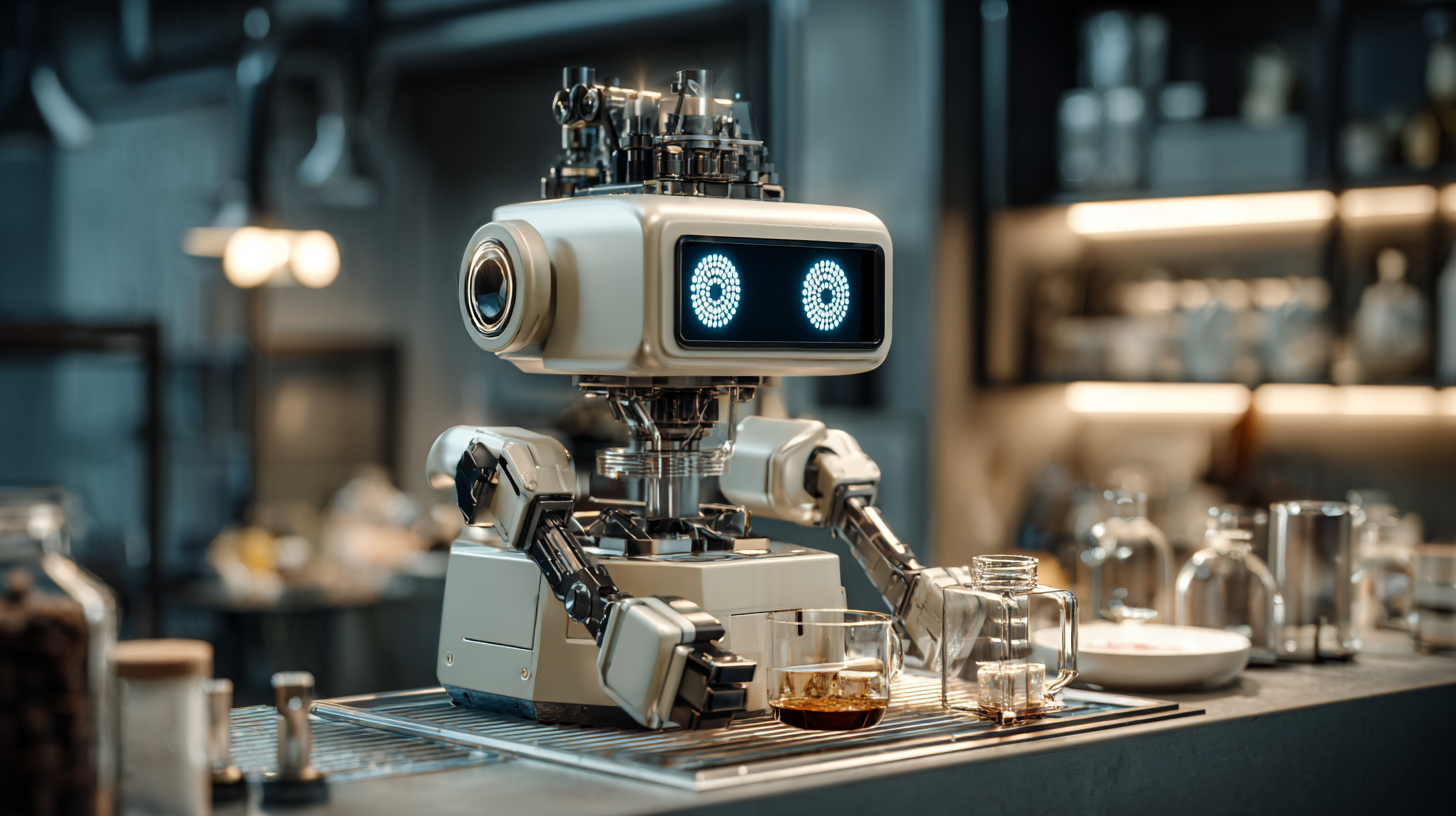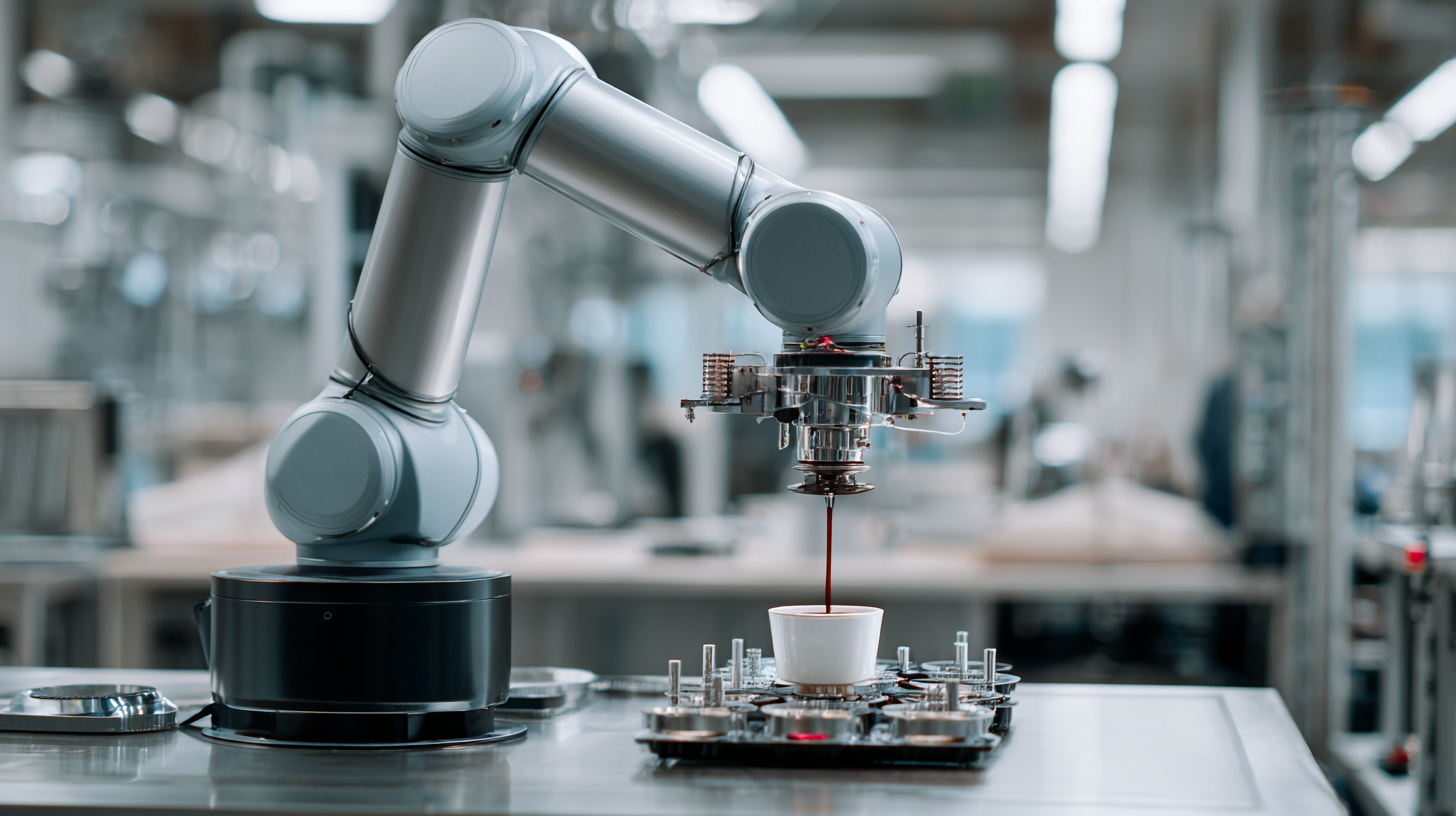Revolutionizing Coffee: How Coffee Robots Are Changing Brewing Efficiency and Flavor Profiles in 2023
In the ever-evolving landscape of coffee culture, 2023 marks a significant turning point with the advent of innovative technologies enhancing our daily brew. Central to this transformation are Coffee Robots, which are redefining not only the efficiency of coffee preparation but also the complexity of flavor profiles. As consumers become increasingly discerning, the demand for both convenience and quality has skyrocketed, paving the way for automated solutions that can meet—and exceed—expectations.
The integration of Coffee Robots into the brewing process is not just a fleeting trend; it represents a fundamental shift in how coffee is perceived and prepared. These advanced machines leverage cutting-edge technology to ensure precision in brewing, resulting in a consistent quality that manual methods often struggle to deliver. Moreover, Coffee Robots are equipped to provide a range of flavors and brewing styles, appealing to a diverse array of preferences in the café culture of today.
As we explore the innovative features and techniques employed by these remarkable machines, it becomes clear that Coffee Robots are not simply tools but partners in the pursuit of the perfect cup. Join us as we delve deeper into the role of Coffee Robots in enhancing brewing efficiency and flavor, offering practical tips for both enthusiasts and casual drinkers alike.

The Rise of Coffee Robots: Transforming the Brewing Landscape in 2023
The rise of coffee robots is reshaping the brewing landscape in 2023, emphasizing efficiency and flavor enhancement. As the coffee industry increasingly turns to automation, recent trends indicate that robotic solutions are not only streamlining the brewing process but are also significantly improving consistency in flavor profiles. According to a report by the Specialty Coffee Association, automation has the potential to enhance brewing precision by up to 30%, ensuring that every cup maintains optimal taste quality.
In this transformative phase, the integration of technology has seen companies investing heavily in innovative brewing equipment. For instance, funding announcements, like the recent $9 million secured by a notable player in the market, underscore the economic potential of advanced brewing solutions. The introduction of high-tech micro-roasters is particularly noteworthy, as they not only provide a greener brewing alternative but also enhance the flavor complexity of coffee by carefully controlling roasting parameters. This shift is expected to redefine consumer expectations and establish new benchmarks for quality in the North American coffee landscape throughout 2023 and beyond.
Enhancing Brewing Efficiency: How Robotics Streamline Coffee Production
In 2023, the coffee industry is experiencing a technological renaissance, with robotics playing a pivotal role in enhancing brewing efficiency. Automated systems streamline various stages of coffee production, from the growing and harvesting processes to the actual brewing at cafes. Precision-engineered robots can monitor crop health, ensuring optimal conditions for growth, and even perform complex tasks such as picking ripe coffee cherries, which significantly reduces labor costs and increases productivity.
Moreover, robotics is not limited to cultivation but extends to the brewing process itself. Automated brewing systems are capable of adjusting parameters like temperature, pressure, and brewing time with remarkable accuracy, resulting in a consistently high-quality cup of coffee. This level of precision allows for the exploration of new flavor profiles, catering to a diverse range of consumer preferences. As coffee robots become increasingly sophisticated, they are set to redefine the standards of quality and efficiency in coffee production, marking a significant step forward in the industry.

Exploring Flavor Profiles: The Impact of Technology on Taste and Aroma
In 2023, the advent of coffee robots has transformed the way coffee is brewed, bringing precision and technological finesse to the craft. These innovations not only enhance brewing efficiency but also revolutionize how flavor profiles are developed. With integrated sensors and advanced algorithms, coffee robots can precisely control variables such as water temperature, brew time, and even the grind size. This level of control ensures that every cup not only meets but exceeds the expectations of coffee enthusiasts, allowing for a more nuanced flavor experience that highlights the unique characteristics of the beans.
Tips: When trying to maximize flavor, consider experimenting with different water temperatures and extraction times. A higher temperature can extract bolder flavors, while a lower temperature may bring out delicate notes. Additionally, pay attention to your grind size—finer grinds typically extract more quickly, resulting in a stronger flavor profile, while coarser grinds can lead to a milder taste.
As technology continues to evolve, the impact on taste and aroma becomes even more pronounced. Coffee robots are capable of analyzing the individual profile of each batch of beans, striving to achieve the perfect balance of acidity, sweetness, and bitterness. This personalized brewing approach allows coffee drinkers to indulge in a truly tailored experience, pushing the boundaries of what coffee can offer.
Tips: Always source fresh, high-quality beans that match your desired flavor profile. The origin of your beans will significantly influence the acidity and overall taste, so choose varieties known for their unique flavor notes that align with your preferences.

The Future of Coffee Shops: Integrating Robots for Improved Customer Experience
In 2023, the coffee shop landscape is undergoing a transformative shift as automation takes center stage, enhancing customer experiences like never before. With the integration of robots, coffee shops are not just improving brewing efficiency but also personalizing services to cater to individual preferences. It is projected that the adoption of smart robot waiters will escalate in the coming years, with market growth driven by advancements in AI and IoT technology. Research indicates that restaurants utilizing such technology can see an increase in operational efficiency by up to 30%, allowing staff to focus on fostering customer connections.
Tips: Implementing robots in your coffee shop can streamline order processing and reduce wait times, creating a smoother experience for your customers. Additionally, consider leveraging data analytics to monitor customer preferences and adapt your menu offerings accordingly for a more personalized touch.
Moreover, these advancements are reshaping consumer expectations; patrons increasingly seek hyper-personalized interactions in their favorite coffee spots. By utilizing AI-driven insights, businesses can predict trends and create tailored marketing strategies. Reports show that 70% of consumers are more likely to engage with brands that offer personalized experiences, positioning coffee shops at the forefront of this new era of customer experience.
Revolutionizing Coffee: How Coffee Robots Are Changing Brewing Efficiency and Flavor Profiles in 2023
| Parameter | Before Integration | After Integration |
|---|---|---|
| Average Brewing Time (minutes) | 5 | 3 |
| Customer Wait Time (minutes) | 7 | 4 |
| Order Accuracy (%) | 85 | 98 |
| Average Customer Satisfaction (out of 10) | 7.5 | 9.2 |
| Types of Coffees Offered | 10 | 15 |
| Total Sales Increase (%) | 0 | 20 |
Sustainability in Coffee Brewing: Robots Lead the Charge Toward Eco-Friendly Practices
The rise of coffee robots in 2023 has not only transformed the efficiency of brewing but has also spearheaded a movement toward sustainable practices within the coffee industry. These advanced machines are designed to minimize waste and optimize resource usage, ensuring that every cup of coffee is crafted with an eye toward environmental responsibility. With critical features like precise water usage, smart energy consumption, and the integration of locally sourced ingredients, coffee robots are setting a new standard for sustainable coffee brewing.
Moreover, the automation of coffee brewing processes helps reduce the carbon footprint associated with traditional methods. By streamlining operations and cutting down on manual labor, these robots contribute to a more sustainable supply chain. As they become more widely adopted, the potential for large-scale eco-friendly practices becomes evident, encouraging cafes and roasters to prioritize sustainability. The marriage of technology and sustainability in coffee brewing not only enhances flavor profiles but also fosters a commitment to preserving the planet for future generations.
